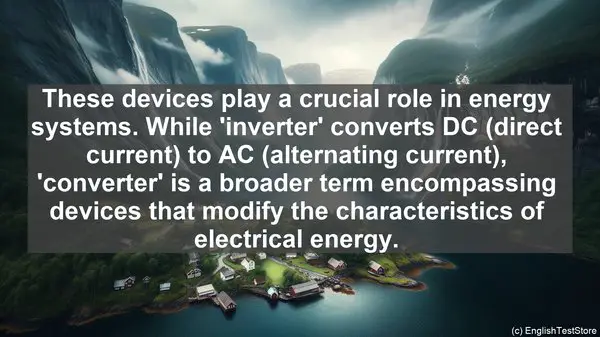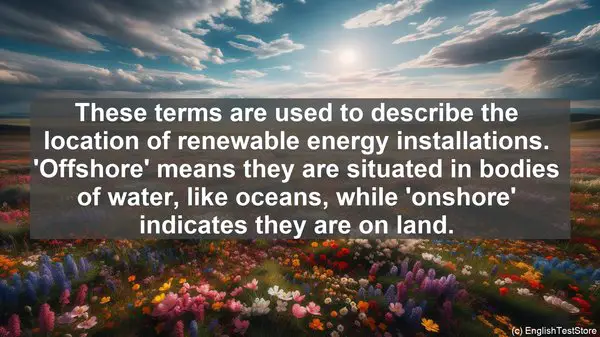Introduction
Welcome to our channel. Today, we have an interesting topic to discuss – the top 10 commonly confused words in renewable energies. As students, it’s crucial to have a clear understanding of these terms, as they form the foundation of this field. So, let’s dive in!
1. Renewable vs. Sustainable
Often used interchangeably, these terms have distinct meanings. ‘Renewable’ refers to energy sources that can be replenished, like solar or wind power. On the other hand, ‘sustainable’ implies using resources in a way that doesn’t deplete them, ensuring their availability for future generations.
2. Photovoltaic vs. Solar
While both relate to solar energy, ‘photovoltaic’ specifically refers to the technology that converts sunlight into electricity. ‘Solar’ is a broader term encompassing all aspects of harnessing energy from the sun.
3. Geothermal vs. Hydrothermal
Often confused due to the similarity in names, ‘geothermal’ refers to harnessing heat from the Earth’s core, while ‘hydrothermal’ involves utilizing heat from water bodies, like oceans or hot springs.
4. Biomass vs. Biofuel
Both involve organic matter, but ‘biomass’ refers to any plant or animal material that can be used as a source of energy, while ‘biofuel’ specifically denotes the processed form of biomass, like ethanol or biodiesel.
5. Offshore vs. Onshore
These terms are used to describe the location of renewable energy installations. ‘Offshore’ means they are situated in bodies of water, like oceans, while ‘onshore’ indicates they are on land.

6. Net Zero vs. Carbon Neutral
Both terms aim for a balance between emissions produced and removed. ‘Net zero’ implies completely offsetting emissions, while ‘carbon neutral’ refers to achieving a balance between emissions and their removal or offsetting.
7. Tidal vs. Wave
While both relate to harnessing energy from the ocean, ‘tidal’ specifically refers to the regular rise and fall of tides, while ‘wave’ involves capturing the energy from oceanic waves.
8. Grid vs. Microgrid
Both terms pertain to electricity distribution. ‘Grid’ refers to the interconnected network that delivers power from large-scale sources to consumers. ‘Microgrid’ is a localized version, often used in remote areas or for specific purposes.
9. Inverter vs. Converter
These devices play a crucial role in energy systems. While ‘inverter’ converts DC (direct current) to AC (alternating current), ‘converter’ is a broader term encompassing devices that modify the characteristics of electrical energy.
10. Megawatt vs. Megawatt-hour
Often used in discussions of energy capacity, ‘megawatt’ denotes the rate at which power is generated or consumed, while ‘megawatt-hour’ refers to the amount of energy produced or used over a specific period.

